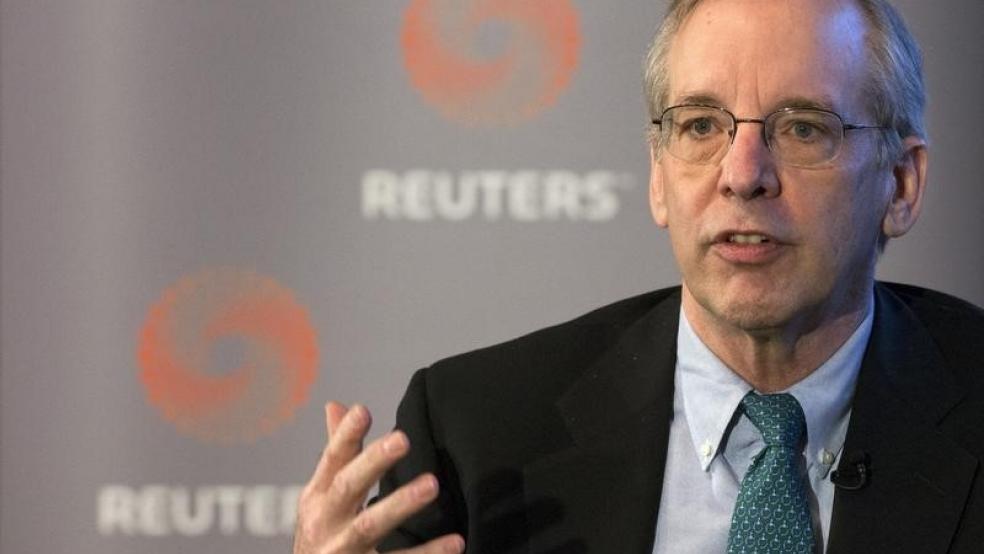MINNEAPOLIS (Reuters) - Progress in the U.S. labor market may have stalled, with strong job gains in part the result of weak productivity growth, and still high levels of part-time work and long-term unemployment evidence of continued slack, New York Fed President William Dudley said on Friday.
On a day when the United States reported the healthy addition of 280,000 jobs in May, Dudley said he was concerned the economy may not be growing fast enough to absorb the slack left among workers sidelined or underemployed by the 2007-2009 financial crisis and recession. In particular if productivity recovers and growth slows, it means employers will need fewer workers - slowing progress on employment and complicating Fed plans to raise interest rates. Dudley said he still expects the Fed will be in position to raise rates later this year, but only if growth rebounds from a weak first half, and there is more progress on measures of labor market weakness."Recent solid job gains and a further decline in the unemployment rate have occurred only because productivity growth has slowed markedly," Dudley said in remarks at the Economic Club of Minnesota. "There remains uncertainty about whether growth will be strong enough to lead to further improvement in the labor market."Dudley on Friday added his voice to a recent chorus of Fed officials concerned that, after a weak start to the year, there has not been the expected rebound in the second quarter. Dudley did say he expected growth to accelerate in the second half of the year, leaving the Fed in position to raise rates in 2015 and end a more than six-year stay at the "zero lower bound."He portrayed a central bank likely to be cautious in how fast it raises rates, and said he personally wants the Fed to keep its $4 trillion in assets until it is clear economic and financial conditions are back to normal. As bonds and other assets expire the Fed should continue reinvesting the proceeds until interest rates are well off the zero lower bound, Dudley said."You want to end reinvestment when you are confident you will not have to go back," he said. The Fed's policy meeting in June will be the first since the start of the financial crisis at which an interest rate hike will be on the table. Few expect an increase at the June 16-17 meeting, though the strong jobs report cemented market expectations of an initial increase in the fall.Dudley said he is confident the New York Fed has the tools to implement a rate hike when the time comes, by, for example, raising the interest rate paid to banks on excess reserves. But in a broader sense he said the process "may not go smoothly," with markets likely to be volatile. He said the rate path will likely be "shallow," though the central bank will adjust based on how financial markets respond.But that all depends on getting started. Dudley said now that oil prices have at least stabilized, he is becoming more confident inflation will eventually rise to the Fed's two percent target.Yet that conviction is also premised on continued progress in the jobs market. Doubts about growth and jobs, Dudley said, mean he is "not completely confident" in the forecast. (Reporting by Howard Schneider; Editing by Chizu Nomiyama)Fed's Dudley concerned labor market may stall but still sees 2015 hike

© Brendan McDermid / Reuters



